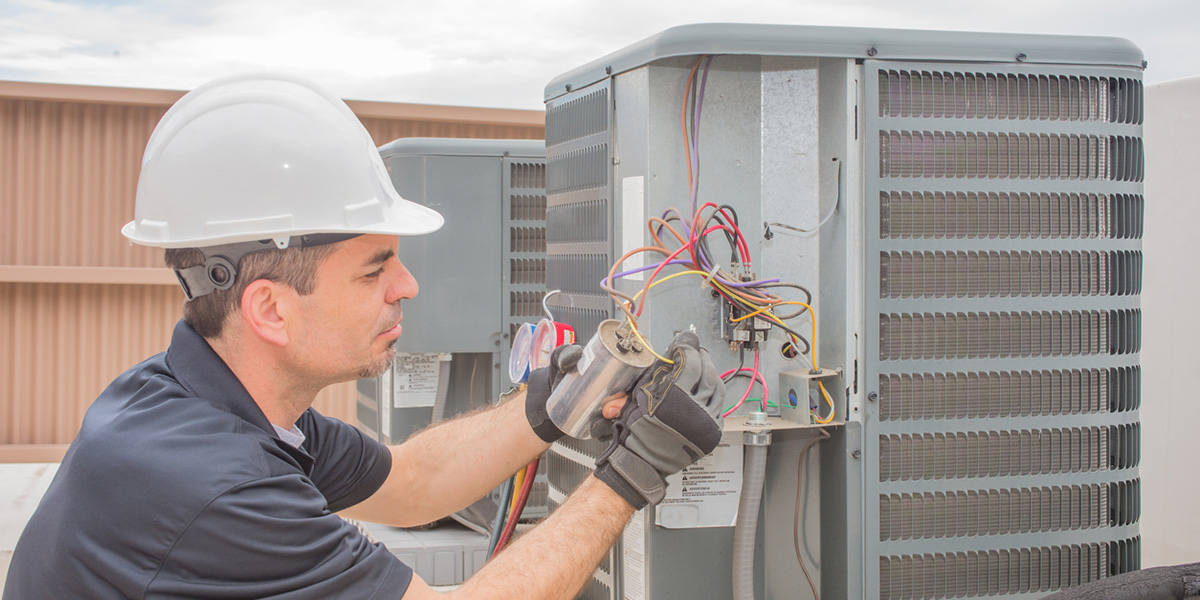
Did you know that over 75% of all AC service issues and repairs are related to electrical issues? And among the key electrical components in an HVAC unit is a capacitor.
What Is an HVAC Capacitor?
A capacitor is used to store electricity, like a solar power backup battery or a rechargeable battery. The capacitor supplies a short burst of energy to the motor it’s connected to when necessary. You’ll find two general types of capacitors in your HVAC unit: the start capacitors and the run capacitors. The start capacitor supplies the extra voltage needed to get the compressor or fan motor started. The run capacitor delivers energy to keep it running. The start capacitor is only needed at the start of each cycle, while the run capacitor runs throughout the cycle. Heat pumps and air conditioning systems use a dual run capacitor, which connects to both the compressor and the fan.
Why are Capacitors Important?
HVAC systems contain numerous electrical circuits, parts, and components. If circuit boards can be considered the brains of the unit, then capacitors are the instigators. Capacitors govern the “start-up” and “run” energy for the electric motors. Capacitors are manufactured in many shapes and sizes and are found in almost all electric motors. In an AC unit, capacitors are small cylinders roughly the size of a Dixie cup, used mainly to store and release electric charges. Capacitors regulate the motors in the compressor, blower, and fan. If the capacitor fails, then the AC motor will soon stop working, and you’ll probably hear a clicking sound or a loud hum. Either noise is, unfortunately, not a good sign and you need to call your local HVAC company for service immediately.
What Causes a Capacitor to Fail?
AC units are manufactured to last a long time, but like most everything built, capacitors will break down over time. The problem is Arizona is a difficult environment for any electrical system, especially those located outside. Lightning, monsoon power failures, and resulting power surges when your home’s power goes back on can wreak havoc on capacitors. And let’s not forget, AC units often run, what seems like continuously, for six months or more in Metro Phoenix year in, year out. All that heavy use and vibration takes a toll, especially on precision electronic parts.
What’s the Best Course of Action if Your Capacitor Stops Working?
Electrical problems and capacitor repairs are not for DIY projects. As capacitors fail, they often split open which, if not handled properly, can result in leakage of toxic materials. The expertly trained technicians at Bruce’s Air Conditioning & Heating will perform a detailed inspection and restore your capacitors and AC to a like-new condition. Why not call the experts at Bruce’s today at 480-968-5652!











